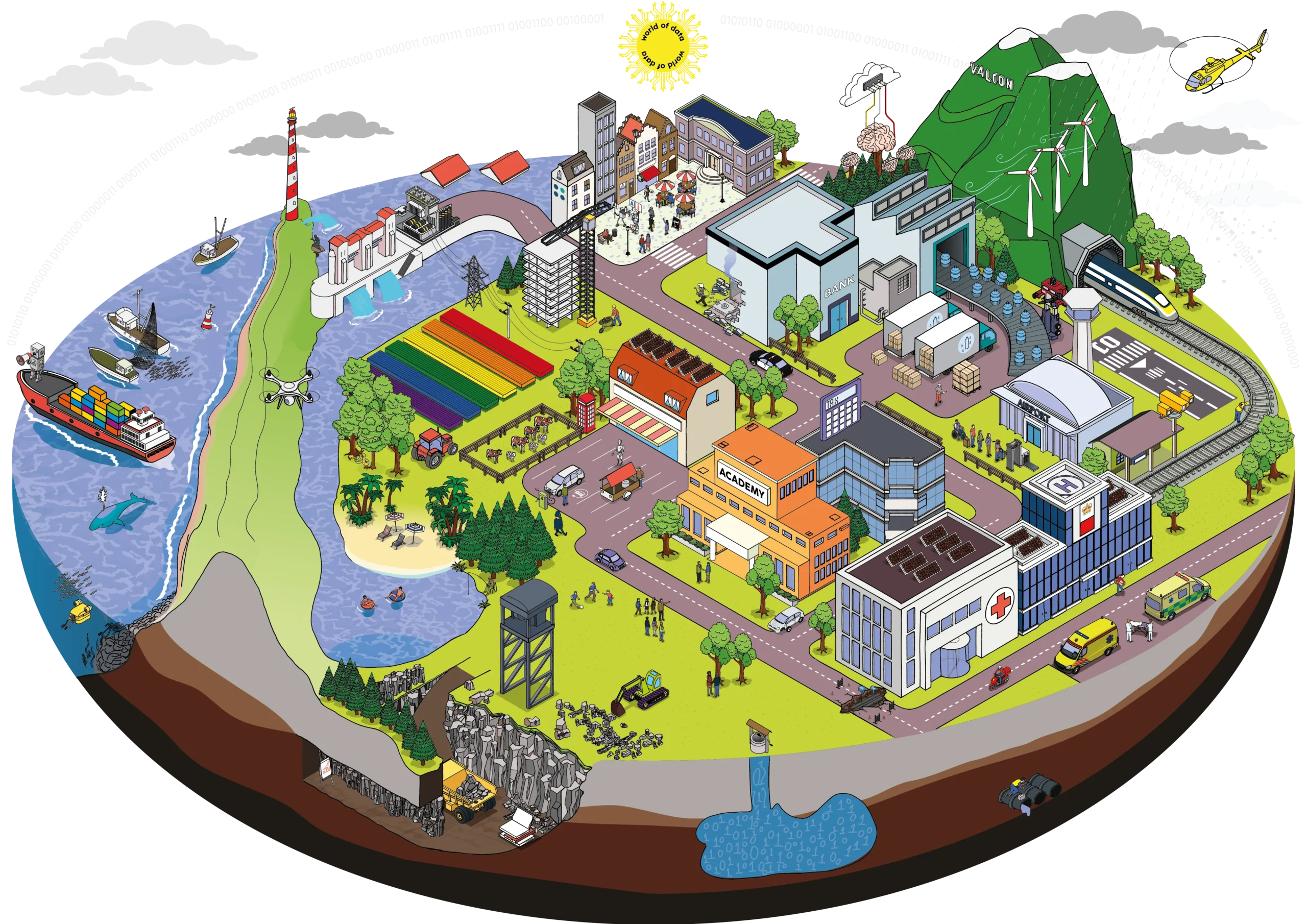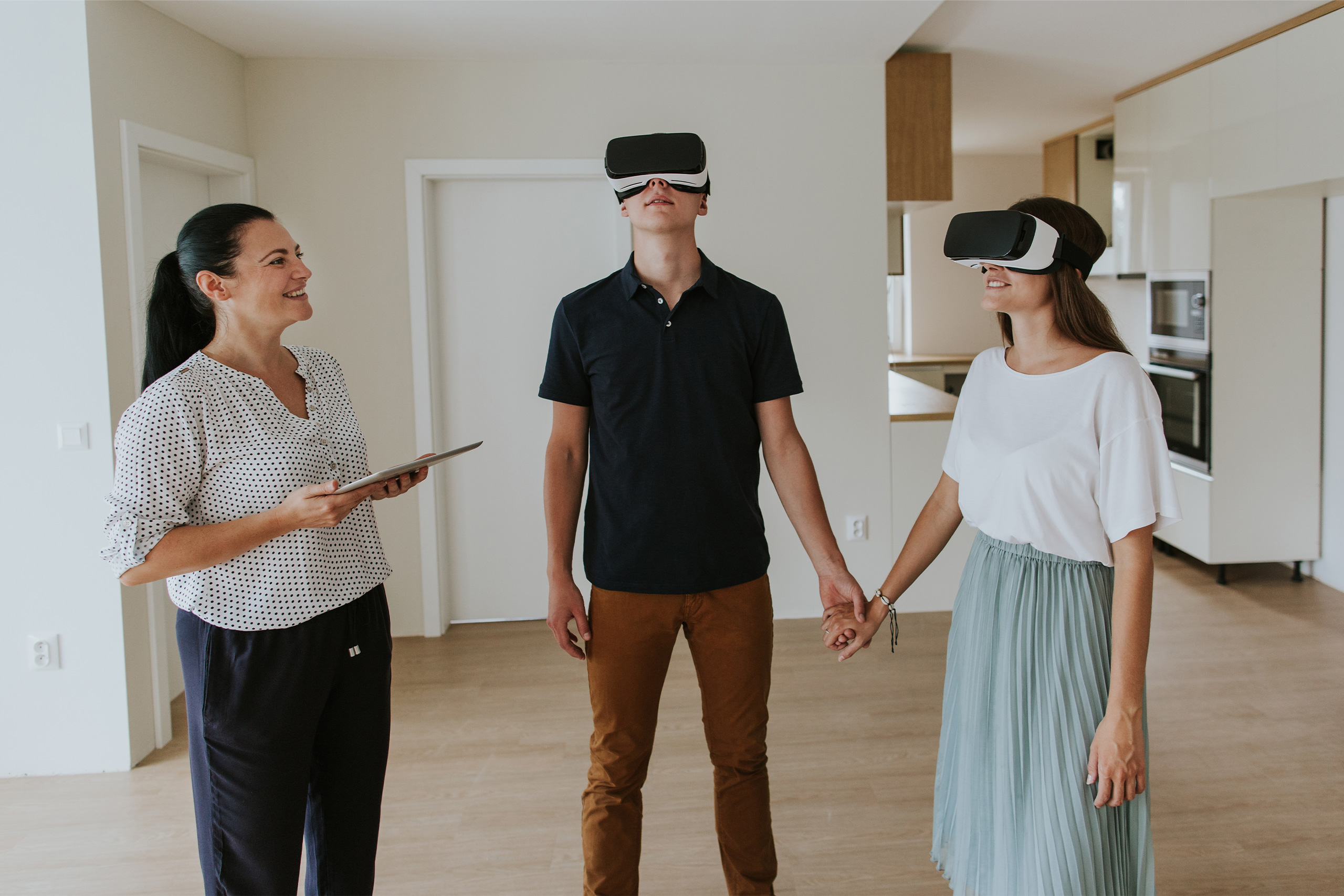PropTech innovations are revolutionising both real estate specialists’ and their clients’ lives. Among these innovations, the most attractive technologies include the integration of AR and VR into business processes.
VR stands for Virtual Reality, while AR stands for Augmented Reality. Although the similarities between these terms are evident and often lead to their misuse, there is one key difference. AR is set in the real world, with an added digital layer, while VR settings are completely virtual.
How these technologies work in the real estate world and in which ways they can benefit your business as well will be the main focus of this blog. So, keep on reading as we delve into the impact of AR and VR technologies!
Uses of AR and VR in real estate
As we said, AR and VR can be used to make business processes quicker and simpler. In this section, we’ll discuss the five most popular ways to do so. These are all aimed at making the buyer’s experience better, but, at the same time, will alleviate a lot of the sales burden placed on the agent.
Virtual property tours
Virtual property tours offer exactly what their name suggests – a chance for potential buyers to visit a property remotely. As contradictive as that sounds, it can be made possible with virtual reality systems.
A buyer would only need to visit an agency, put on a VR headset, and they’ll be ready to explore the space they’re potentially going to buy. An even more convenient scenario would be if the buyer owned a headset at home, but we know that that case won’t be very frequent.
That’s why real estate businesses are advised to offer this type of service. Not only will it make the buying process easier, but it will also make your company more attractive to potential clients. Offering a technologically advanced experience elevates the entire process, making you stand out among your competitors.
Enhancing property visualisations
If a customer comes to an in-person viewing, there is only so much information that can be relayed by the agent. To make this process more informative, AR goggles can be utilised to show more data.
For example, the customer can see an overlay that displays invisible elements, such as piping systems or the dimensions of a room. This information can be extremely valuable, as it makes planning much easier while at the same time relieving the agent of the duty to memorise and recite every fact and figure.
Furthermore, AR can be used to overlay the floor plan of a property onto any surface to allow the client to more easily visualise the space they’re purchasing. For this process, it’s also not uncommon to involve an architect or interior designer, as this information will certainly prove valuable to them as well.
Virtual staging
Staging a property is an essential step in finding buyers. Although the appearance of a space isn’t a deciding factor, it’s certainly something that can influence the final decision. Traditionally, staging an apartment or any other facility took time, effort, and resources to rent and place furniture and décor.
But, with the use of AR, those same items can be virtually overlayed on top of an empty space. Not only that, but the potential buyer can select wall and floor materials while being able to see how they would interact with, for example, HVAC systems. Similarly, insight into the building’s electrical network will make light placement easier.
Virtual commerce
The discussion on virtual commerce is closely related to virtual staging. The items placed within a space by an agency won’t always be to the buyer’s liking. That’s when online stores with AR capabilities come into play.
The viewer can choose different pieces of furniture, décor, and wall/floor patterns and immediately visualise them from the store catalogue onto their new property. Partnering with such shops can be a beneficial endeavour for both them and your real estate company, as it is not uncommon for the real estate business to see a percentage of furniture sales.
Property maintenance
The final application of VR and AR in real estate we’re going to talk about has to do with the benefits service staff will see. Maintaining an entire building is no easy feat, especially when all information is stored in one computer (or, even worse, on paper).
Maintenance staff can use an AR headset to visualise HVAC systems, electrical networks, piping, and other important data on the spot. This will simplify and make the process easier while simultaneously making work more precise.
Another added benefit is that introducing such advanced technologies into your business will make you more attractive as an employer, which is especially important in the service industry due to its ageing workforce and unappealing reputation.
Recap
All in all, there’s always room for advancements in your business. Being at the forefront of integrating new technologies can not only make you stand out from the competition but also make you more attractive as a service provider and as an employer.
We discussed the 5 most popular applications of AR and VR in real estate, including property tours, easier visualisations, staging, virtual commerce, and maintenance. Introducing one or more of these into your PropTech platform will allow you to reap all the benefits of doing business in the modern age.
If you’re ready to take that next step, Valcon can offer you the right IT support throughout your journey. For more information, please reach out to [email protected] and let’s start working together toward a more innovative future.













